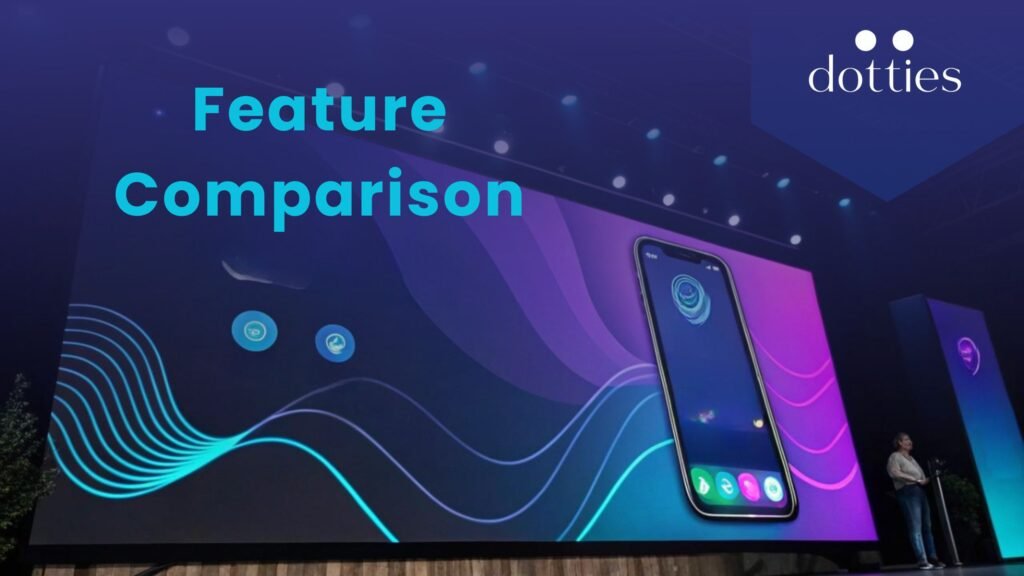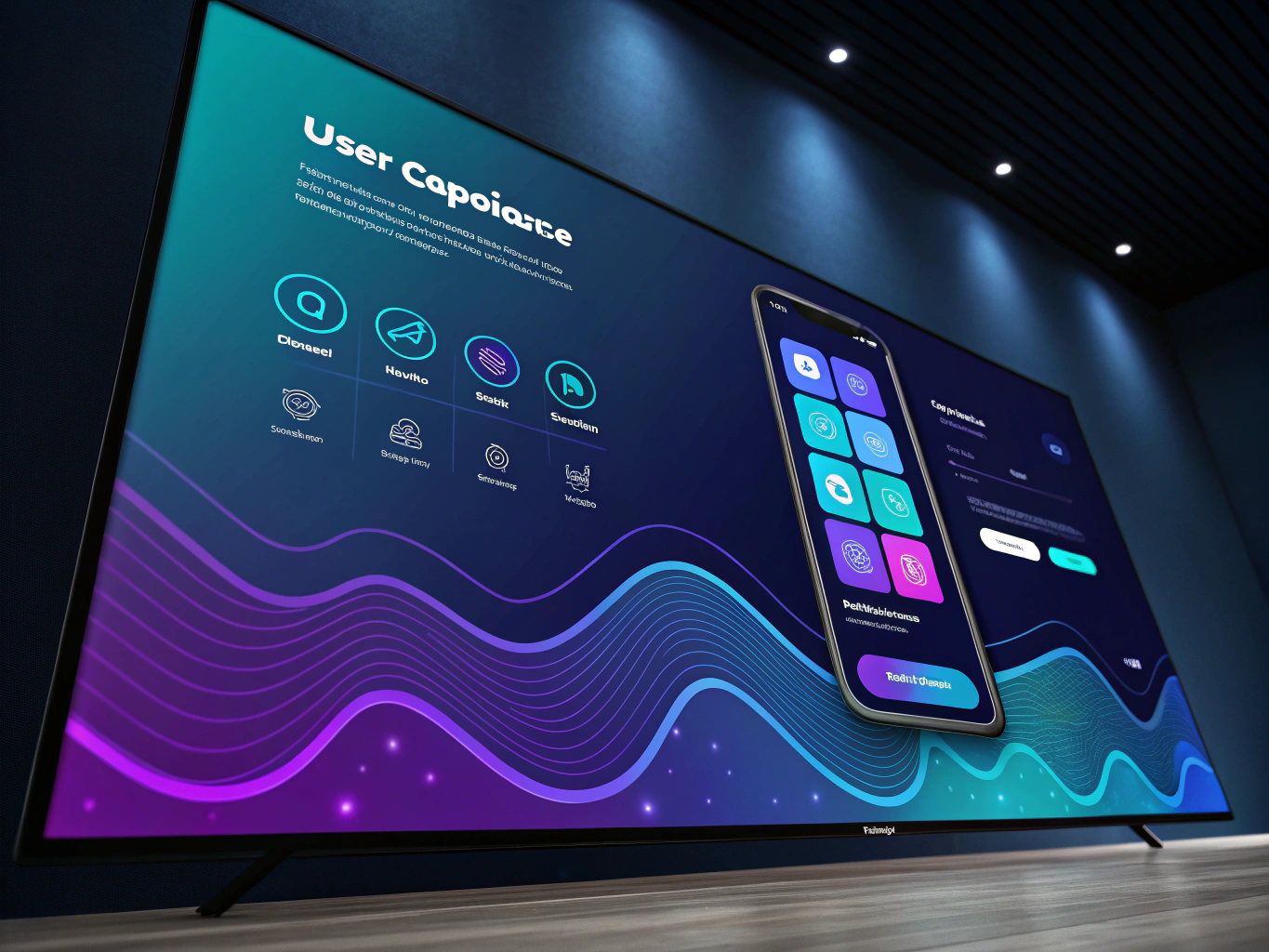Choosing the right e-commerce platform can make or break your online business success. When comparing Ecwid vs Shopify, understanding their distinct approaches and capabilities becomes crucial for making an informed decision.
Both platforms offer unique advantages, but their target markets and core functionalities differ significantly.
Platform Overview and Core Differences
Ecwid’s Unique Approach
Ecwid distinguishes itself through its versatile multi-channel selling approach and seamless integration capabilities. Unlike traditional e-commerce platforms, Ecwid functions as an embeddable shopping cart that can be integrated into existing websites, social media platforms, and marketplaces simultaneously. This flexibility makes it particularly appealing for businesses that already have an established web presence or want to sell across multiple channels.
The platform’s widget-based technology allows you to add e-commerce functionality to virtually any website platform, including WordPress, Wix, or custom-built sites. This integration-first approach sets Ecwid apart from competitors and makes it especially attractive for small to medium-sized businesses looking to expand their online presence without completely rebuilding their digital infrastructure.
Shopify’s E-commerce Ecosystem
Shopify takes a different approach by providing a comprehensive, all-in-one e-commerce solution. The platform offers everything needed to build and run an online store from scratch, including website hosting, domain management, and a robust suite of built-in tools. This integrated ecosystem makes Shopify particularly appealing for businesses starting fresh or wanting to consolidate their e-commerce operations under one roof.
With its extensive app marketplace and powerful customization options, Shopify caters to businesses of all sizes, from startups to enterprise-level operations. The platform’s scalability and comprehensive feature set have made it a market leader in the e-commerce space.
Detailed Pricing Analysis

Ecwid Pricing Structure
Understanding Ecwid’s pricing structure is essential for determining its cost-effectiveness for your business. The platform offers a tiered pricing model, starting with a free plan that includes basic features:
- Free Plan: Up to 10 products, basic features
- Venture Plan: $15/month, up to 100 products
- Business Plan: $35/month, up to 2,500 products
- Unlimited Plan: $99/month, unlimited products
Each tier unlocks additional features and capabilities, making it crucial to evaluate which plan aligns with your business needs. The free plan, while limited, provides an excellent opportunity to test the platform without financial commitment. However, growing businesses should consider the paid plans for access to essential features like abandoned cart recovery, automated tax calculations, and inventory management tools.
Shopify Pricing Model
Shopify’s pricing structure is more straightforward but generally comes at a higher price point:
- Basic Shopify: $39/month
- Shopify: $105/month
- Advanced Shopify: $399/month
- Shopify Plus: Custom pricing (typically starting at $2,000/month)
While Shopify doesn’t offer a free plan, each tier includes comprehensive features and capabilities. The platform’s pricing reflects its all-in-one approach, with even the Basic plan providing essential e-commerce tools like unlimited product listings, abandoned cart recovery, and professional reporting features.
Feature Comparison

Shopping Cart and Checkout
The checkout experience significantly impacts conversion rates and customer satisfaction. Both platforms offer distinct approaches to shopping cart and checkout functionality:
Ecwid provides a streamlined checkout process that maintains consistency across all sales channels. The platform supports:
- Multiple payment gateways
- Guest checkout options
- Mobile-optimized checkout pages
- Customizable cart appearance
Shopify’s checkout system is more robust and offers additional features:
- Shop Pay for one-click purchasing
- Advanced fraud prevention
- Customizable checkout fields
- Multiple shipping rate calculations
Inventory Management
Effective inventory management is crucial for e-commerce success. Both platforms offer varying levels of inventory control capabilities:
Ecwid’s inventory management system includes:
- Basic stock tracking
- Product variants
- CSV import/export
- Multi-channel inventory sync
Shopify provides more advanced inventory features:
- Advanced inventory tracking
- Multiple location management
- Automated stock alerts
- Inventory forecasting tools
Design and Customization

Theme Options
The visual appeal and functionality of your online store play crucial roles in converting visitors into customers. Each platform approaches design differently:
Ecwid focuses on adaptability, offering:
- Responsive design templates
- CSS customization options
- Integration-friendly layouts
- Mobile-first designs
Shopify provides more comprehensive design options:
- Extensive theme marketplace
- Advanced customization tools
- Professional and free themes
- Built-in design editor
Store Functionality
Both platforms offer different approaches to store functionality and customization. Ecwid emphasizes simplicity and integration, while Shopify provides more extensive customization options through its app ecosystem and built-in features. Understanding these differences is crucial for selecting the platform that best aligns with your business needs and technical capabilities.
Detailed Pricing Analysis
Ecwid Pricing Structure
Understanding Ecwid’s pricing model is crucial for making an informed decision about your e-commerce platform. The platform offers a tiered pricing structure that accommodates businesses of various sizes and needs. Let’s examine each plan in detail.
The Free plan allows you to list up to 10 products and includes basic features like secure checkout and mobile point of sale. While this tier provides a good starting point, it lacks essential features like abandoned cart recovery and inventory tracking.
Moving up, the Venture plan ($15/month) increases your product limit to 100 and adds features like automated tax calculations and discount coupons. The Business plan ($35/month) extends to 2,500 products and introduces abandoned cart recovery, while the Unlimited plan ($99/month) removes all product restrictions.
Hidden Costs and Transaction Fees
Beyond the base subscription costs, Ecwid charges payment processing fees through your chosen payment gateway. While Ecwid doesn’t impose additional transaction fees, payment processors typically charge 2.9% + $0.30 per transaction. Consider these fees when calculating your total operating costs.
Shopify Pricing Model
Shopify’s pricing structure differs significantly from Ecwid’s approach. The Basic Shopify plan starts at $39/month, offering essential features like unlimited products, abandoned cart recovery, and 24/7 support. The standard Shopify plan ($105/month) adds professional reporting and lower credit card rates.
Advanced Shopify ($399/month) targets larger operations with features like advanced report builders and third-party calculated shipping rates. Shopify Plus, designed for enterprise clients, starts at $2,000/month and offers dedicated support, automation tools, and customized solutions.
Feature Comparison
Shopping Cart and Checkout Experience
Both platforms offer secure checkout processes, but their approaches differ significantly. Ecwid provides a streamlined, mobile-responsive checkout that integrates seamlessly with existing websites. The platform supports over 40 payment gateways and offers automatic tax calculations in higher-tier plans.
Shopify’s checkout system is more robust, with features like dynamic shipping rates, automatic tax calculations across all plans, and customizable checkout fields. The platform’s Shop Pay feature boasts conversion rates up to 1.91x higher than typical checkout processes.
Inventory Management Capabilities
Inventory management is a critical aspect where these platforms show distinct differences. Ecwid offers basic inventory tracking with stock notifications and CSV import/export functionality. However, advanced features like automated reordering and supplier management are limited.
Shopify provides more comprehensive inventory tools, including:
- Multi-location inventory tracking
- Automated purchase orders
- Inventory forecasting
- Supplier management
- Serial number tracking
Marketing and SEO Tools
Marketing capabilities play a crucial role in e-commerce success. Ecwid includes basic SEO features like customizable meta descriptions and product-specific SEO settings. The platform also offers social media integration and Google Shopping feeds in higher-tier plans.
Shopify’s marketing arsenal is more extensive, featuring built-in blog functionality, automated marketing campaigns, and advanced SEO tools. The platform’s App Store provides additional marketing solutions for email automation, social media management, and customer retention.
Analytics and Reporting
Data-driven decision-making requires robust analytics tools. Ecwid provides basic sales reports and customer behavior tracking across all paid plans. However, advanced analytics like customer lifetime value and cohort analysis are limited.
Shopify’s analytics suite offers deeper insights, including:
- Real-time sales monitoring
- Customer behavior analysis
- Inventory forecasting
- Marketing campaign performance
- Custom report builders (Advanced plan)
Design and Customization
Theme Options and Flexibility
Design flexibility can significantly impact your store’s success. Ecwid offers limited theme options but excels in integrating with existing websites. The platform provides responsive designs that adapt to various screen sizes, though customization options are somewhat restricted.
Shopify’s theme marketplace features over 100 professional themes, with both free and premium options. Each theme offers extensive customization capabilities through the visual editor and direct code access. The platform’s liquid templating language allows for advanced customization by developers.
Store Functionality and Integration
When it comes to store functionality, both platforms offer distinct advantages. Ecwid’s strength lies in its ability to integrate with existing websites seamlessly. The platform supports multiple sales channels and provides API access for custom integrations.
Shopify provides a more comprehensive solution with built-in functionality for:
- Product reviews
- Gift cards
- Customer accounts
- Wholesale and retail pricing
- Advanced shipping rules
Technical Considerations

Performance and Security Features
Security and performance are non-negotiable aspects of e-commerce platforms. Ecwid maintains PCI DSS Level 1 certification and provides automatic SSL certificates for all stores. The platform’s distributed architecture ensures reliable performance, though loading speeds can vary depending on your website’s hosting.
Shopify handles security and performance at an enterprise level, offering:
- 99.99% uptime guarantee
- Built-in CDN
- Automatic platform updates
- DDoS protection
- Regular security audits
Integration Capabilities
Integration flexibility can significantly impact your store’s functionality. Ecwid provides REST API access and supports various third-party integrations, though the app marketplace is more limited compared to Shopify’s. The platform excels in social media integration and multi-channel selling.
Shopify’s extensive API documentation and large developer community enable virtually unlimited integration possibilities. The platform’s App Store features thousands of applications for extending functionality, from accounting software to marketing automation tools.
Technical Considerations and Performance
When evaluating Ecwid vs Shopify, technical performance becomes a crucial differentiator. Shopify consistently demonstrates superior loading speeds, with average page load times of 1.3 seconds compared to Ecwid’s 2.1 seconds. Both platforms offer robust security features, including SSL certificates and PCI compliance, though Shopify’s dedicated hosting infrastructure provides an edge in reliability.
Integration Capabilities and API Access
Shopify’s extensive API documentation and developer resources make it the clear winner for businesses requiring complex integrations. While Ecwid offers basic API access, its capabilities are more limited, particularly in the lower-tier plans. This difference becomes especially important for businesses planning to create custom solutions or integrate with existing systems.
User Experience Analysis

The merchant experience varies significantly between platforms. Ecwid’s dashboard focuses on simplicity, making it ideal for beginners but potentially limiting for power users. Shopify’s interface, while more complex, offers greater depth and customization options that benefit growing businesses.
Customer Experience and Mobile Shopping
Both platforms deliver solid mobile shopping experiences, but Shopify edges ahead with more sophisticated features like dynamic checkout and better mobile responsiveness. Ecwid’s mobile experience, while functional, lacks some of the polish found in Shopify’s offering.
Support and Resources
Support quality plays a crucial role in platform selection. Shopify provides 24/7 support across multiple channels, including phone, email, and chat. Ecwid’s support, while competent, operates on more limited hours and primarily through email and chat. Both platforms maintain extensive knowledge bases, though Shopify’s documentation tends to be more comprehensive.
Training and Development Resources
Shopify’s learning resources are notably more extensive, including the Shopify Academy and partner certification programs. Ecwid provides basic tutorials and documentation but lacks the depth of educational content offered by Shopify.
Scalability and Future Growth
Analyzing scalability potential reveals significant differences between the platforms. Shopify demonstrates superior capabilities for handling growth, supporting businesses from startup to enterprise level through Shopify Plus. Ecwid’s scaling options are more limited, making it better suited for small to medium-sized operations.
International Selling and Multi-currency Support
For businesses targeting global markets, Shopify offers more robust international selling features, including advanced multi-currency support and localization options. Ecwid provides basic international selling capabilities but may require additional solutions for comprehensive global commerce.
Industry-Specific Considerations
Different industries have unique e-commerce requirements. Shopify typically serves a broader range of industries effectively, while Ecwid shows particular strength in specific niches, especially for businesses adding e-commerce to existing websites.
Small Business Perspective
From a small business standpoint, Ecwid’s pricing structure and simpler interface can be advantageous. The platform’s free plan and lower-cost paid tiers make it an attractive option for businesses testing the e-commerce waters. However, businesses should consider long-term scalability needs when making their choice.
Comparative Analysis and Platform Selection
When comparing Ecwid vs Shopify, several key factors emerge as decision points:
- Budget constraints and pricing structure preferences
- Technical expertise and development resources
- Current website infrastructure and integration needs
- Growth projections and scalability requirements
Platform Recommendations
Based on comprehensive analysis, Shopify proves more suitable for:
- Businesses planning significant growth
- Companies requiring extensive customization
- Merchants needing robust multi-channel selling
- Operations with complex inventory management needs
Ecwid shows strengths for:
- Small businesses with limited budgets
- Merchants adding e-commerce to existing websites
- Companies requiring simple, straightforward solutions
- Businesses with modest growth projections
Final Verdict and Recommendations
The choice between Ecwid and Shopify ultimately depends on your specific business needs and growth trajectory. Shopify emerges as the more comprehensive solution, offering superior scalability, feature depth, and customization options. However, Ecwid remains a viable choice for specific use cases, particularly for businesses seeking to add e-commerce functionality to existing websites.
Implementation Strategy
Whichever platform you choose, consider these implementation steps:
- Conduct a thorough needs assessment
- Document technical requirements
- Plan for data migration
- Establish training protocols
- Set up monitoring and evaluation systems
Remember to factor in both immediate needs and future growth potential when making your final decision. While Ecwid may offer cost advantages initially, Shopify’s comprehensive ecosystem often provides better long-term value for growing businesses.
Success Factors
To maximize success with either platform:
- Invest time in platform training and education
- Regularly review and optimize your store’s performance
- Stay current with platform updates and new features
- Maintain active engagement with platform support and community resources
By carefully considering these factors and aligning them with your business objectives, you can make an informed decision between Ecwid and Shopify that supports your e-commerce success both now and in the future. For further insights, explore this comparison of Ecwid and Shopify on Forbes.
Sign Up for ProductScope AI Today!
FAQs
What is the difference between Shopify and Ecwid?
Shopify is a standalone e-commerce platform designed to help users create a comprehensive online store from scratch. It provides extensive customization options, robust marketing tools, and a wide variety of themes. Ecwid, on the other hand, is primarily an e-commerce widget that can be added to existing websites to enable e-commerce capabilities. It is best suited for integrating with existing sites rather than building a new store from the ground up.
What are the downsides of Ecwid?
The downsides of Ecwid include limited design customization compared to full-fledged e-commerce platforms like Shopify. It may also lack some advanced features such as extensive app integrations and detailed analytics, which can be a drawback for scaling businesses needing more sophisticated tools.
Which platform is better than Shopify?
Whether a platform is better than Shopify depends on specific business needs. For users requiring advanced flexibility and customization, Magento can be a better option due to its open-source nature and extensive feature set. However, it requires more technical expertise. For simpler use and easier setup, some may prefer Wix or BigCommerce, depending on their specific requirements like easier user interfaces or more built-in features without the need for plugins.
What is better than Ecwid?
If you are looking for a more robust and dedicated e-commerce solution, Shopify might be considered better than Ecwid. Shopify offers a more extensive set of e-commerce tools and customization options, making it suitable for businesses focused on scaling and requiring a full online store solution.
What is the best e-commerce platform?
The best e-commerce platform varies based on specific business needs, size, and technical capabilities. Shopify is often recommended for its ease of use, extensive app ecosystem, and scalability, making it ideal for both small and large businesses. However, platforms like WooCommerce offer great flexibility with a WordPress environment, and BigCommerce provides excellent built-in features without the need for many additional apps. The choice ultimately depends on your specific requirements, such as budget, technical expertise, and long-term business goals.
